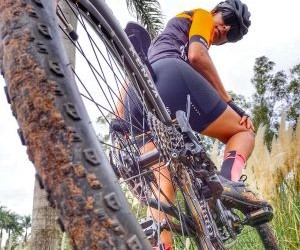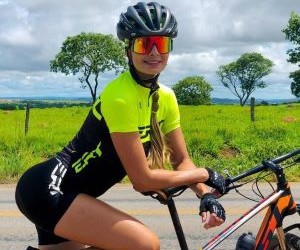Discover the powerful benefits of cycling every day—from better health and mental clarity to eco-savings and long-term fitness—one pedal stroke at a time.
WHAT IS THE IDEAL DIET FOR COMPETITIVE CYCLISTS?
Understanding the ideal diet for competitive cyclists means optimizing energy, endurance, and recovery. This guide offers practical advice on macronutrients, timing, hydration, and supplementation, giving athletes the fuel needed to perform at their best. From carb-loading strategies to post-ride recovery meals, we break down evidence-based tips into digestible tactics for real-world results.

Macronutrients that power performance
For competitive cyclists, mastering the right macronutrient balance is the bedrock of peak performance. Macronutrients—carbohydrates, proteins, and fats—each serve unique roles in energy production, recovery, and endurance. Mismanaging this balance can result in energy crashes, slower recovery, and compromised training gains.
Carbohydrates: The primary fuel
Cyclists burn through glycogen stores rapidly, especially during high-intensity rides. Carbohydrates should make up 55–70% of a cyclist’s daily calorie intake. Choose complex carbs like oats, quinoa, and whole-grain bread for sustained energy, while incorporating simple carbs like bananas and sports drinks during rides longer than 90 minutes.
Aim for 6–10g of carbohydrates per kg of body weight daily
Include pre-ride meals with low GI carbs for slow energy release
Use gels and isotonic drinks during endurance events
Refuel with a 4:1 carb-to-protein ratio within 30 minutes post-ride
Protein: Repair and rebuild
Protein is critical for muscle repair and adaptation. Competitive cyclists should consume 1.2–2.0g of protein per kg of body weight daily. Prioritize high-quality sources like lean meats, eggs, dairy, tofu, and legumes. Timing also matters—spread intake across the day and include protein-rich snacks post-training.
Use whey or plant-based shakes after intense sessions
Include eggs or Greek yogurt in breakfast
Avoid low-protein diets during peak training phases
Fats: The endurance reserve
While often overlooked, fats are essential for long-distance cyclists. Healthy fats support hormone regulation, brain function, and serve as a backup fuel source. Aim for 20–30% of total calories from sources like nuts, seeds, olive oil, and fatty fish.
Choose unsaturated fats over saturated or trans fats
Snack on almonds or avocado toast for long-ride prep
Supplement with omega-3s for anti-inflammatory benefits
Timing and hydration strategies
Even the best dietary choices can fall short if the timing and hydration aren’t dialed in. Competitive cyclists must synchronize meals and fluid intake with training and competition demands to optimize performance, minimize fatigue, and accelerate recovery.
Meal timing before and after rides
Eating the right food at the right time enhances glycogen storage, reduces muscle breakdown, and boosts energy availability. Pre-ride meals should be consumed 2–3 hours before cycling, focusing on carbs and moderate protein. Post-ride, the recovery window—within 30–60 minutes—is crucial for muscle repair and glycogen resynthesis.
Pre-ride: Oatmeal with banana and almond butter
During ride: 30–60g of carbs per hour
Post-ride: Chocolate milk or protein shake with carbs
Hydration: The silent performance killer
Dehydration as little as 2% of body weight can impair performance. Cyclists must hydrate before, during, and after rides. Electrolytes—especially sodium, potassium, and magnesium—are vital for muscle function and fluid balance. Track sweat rate and adjust fluid intake accordingly.
Preload with 500ml of water 2 hours before riding
Sip 150–250ml every 15–20 minutes during long rides
Use electrolyte tablets for rides exceeding 90 minutes
Check urine color to monitor hydration status
Training vs. race day nutrition
Nutrition strategies should differ between training and race days. Training rides allow room for experimentation with food timing, composition, and supplements. Race day plans should be pre-tested and streamlined to avoid surprises.
Stick with familiar foods on race day
Avoid high-fiber or greasy meals pre-race
Taper fiber and fat intake 24 hours prior to competition
Supplements and recovery boosters
While food is the foundation, smart supplementation can help fill nutritional gaps and enhance recovery for competitive cyclists. However, every supplement must be evidence-based, third-party tested, and aligned with anti-doping regulations.
Top supplements for cyclists
Some well-researched supplements have shown benefits in endurance, muscle recovery, and inflammation control. Creatine, beta-alanine, and caffeine may support power output, while antioxidants can reduce oxidative stress from long training sessions.
Caffeine: Enhances focus and reduces perceived exertion
Creatine: Supports sprint performance and lean mass
Beta-alanine: Buffers lactic acid buildup in long climbs
Magnesium: Aids sleep, reduces cramps
Recovery-focused nutrients
Recovery is where gains are made. Nutrients like tart cherry juice, turmeric, and collagen peptides have been linked to reduced inflammation, improved joint health, and faster muscle repair. Including antioxidants post-ride can also aid in cellular regeneration.
Tart cherry: Reduces DOMS and improves sleep
Turmeric/curcumin: Anti-inflammatory benefits
Collagen: Supports joints, tendons, and ligaments
Protein with leucine: Triggers muscle protein synthesis
Cautions and customizations
Supplements should complement—not replace—a solid diet. Cyclists with specific medical conditions or allergies must consult a sports dietitian. Regular blood panels can detect deficiencies and fine-tune supplementation plans for individual physiology.
Avoid mega-dosing fat-soluble vitamins
Opt for NSF Certified for Sport® products
Log reactions to new supplements during training, not race week
YOU MAY ALSO BE INTERESTED








